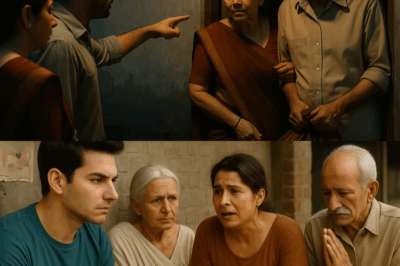Aamir Khan and the Jessica Hines Allegations: Revisiting Bollywood’s Long-Standing Controversy
Introduction
Bollywood, India’s globally-renowned film industry, is seldom short of drama—not just on screen, but off it. Amongst the many stories that have kept the grapevine abuzz, few have generated as much controversy and speculation as the unconfirmed claims about superstar Aamir Khan’s personal life. This week, the topic has resurfaced in the media after actor Faisal Khan, Aamir’s brother, repeated allegations during a recent press conference regarding Aamir Khan’s purported relationship with British journalist and author Jessica Hines, and the existence of a child from this liaison.
A Controversy Reignited
The rumors and allegations are not new. They first surfaced almost two decades ago, in the early 2000s. According to gossip columns and some media reports from the time, after Aamir Khan’s divorce from his first wife Reena Dutta in 2002, he became involved with British journalist Jessica Hines. Hines, a respected writer known for her work on Bollywood—including the acclaimed book “Looking for the Big B: Bollywood, Bachchan and Me”—was supposedly researching the Indian film industry during the late 1990s and early 2000s. It was during this period that she and Aamir Khan are said to have met.
In his latest statements, Faisal Khan claims that the relationship between Aamir and Jessica developed during the shooting of the film “Ghulam.” The two became close—so much so, alleges Faisal, that they entered a live-in relationship. The story goes that Jessica became pregnant and confided the news to Aamir Khan. The transcript (as quoted from Faisal’s statements) alleges that Aamir Khan advised Jessica to terminate the pregnancy, but she decided to carry the baby to term.
Jessica reportedly gave birth to a boy, whom she named Jaan, in 2003. While Jessica is said to have maintained that Aamir Khan is the father, Aamir has always categorically denied the claims, explicitly stating he has no relationship with Jessica Hines and has not fathered a child with her. Jessica herself has not given any public confirmation or direct statements on the paternity, choosing to keep her private life just that: private.
A Family Affair
Faisal Khan’s press conference didn’t stop at the allegations about Jessica Hines. He delved into the subject of family dynamics, dissatisfaction, and the emotional toll of being part of a famous (and sometimes fractured) family. He recounted how feeling pressured to marry by family members, and the apparent double standards at play, led him to pen an open letter to his family. In this letter, Faisal reportedly called out various members—pointing out, sometimes bluntly, that many in the family had gone through multiple marriages or divorces themselves. He used strong language out of frustration, which, by his own admission, may have hurt his family, resulting in further alienation.
Faisal asserted that this family tension escalated to the point where he was labeled mentally unstable—a move he claims was rooted more in family politics than in care or concern for his health.
Why Has This Story Persisted?
Bollywood’s allure extends beyond films. The personal lives of its actors, particularly a superstar like Aamir Khan—often referred to as “Mr. Perfectionist”—are subject to intense scrutiny and public interest. The purported story involving Jessica Hines and their alleged son Jaan has been the subject of countless whispers, news snippets, and online speculation for the better part of two decades.
Why does such a story refuse to go away, even when those involved have chosen, largely, to remain silent? In part, this reflects both the public’s curiosity and the Indian media’s willingness to rehash old rumors in the absence of new headlines. Most crucially, it comes down to the way celebrities’ personal lives often serve as a canvas on which the public projects its own anxieties, judgments, and allegiances.
Fact, Fiction, and the Power of Allegation
It is essential to emphasize that the claims about Aamir Khan, Jessica Hines, and the alleged child remain just that: claims. There is no legal or public confirmation from either party involved. Aamir has repeatedly refuted the allegations. Jessica Hines, except some indirect media mention, has never pursued legal acknowledgment or pressed the matter in the public eye.
Faisal’s recent statements have reignited the controversy, but they do not, in themselves, serve as proof. In India—as in many countries—rumors about film stars often snowball regardless of underlying truth.
The Ethics of Reporting and Responsible Discourse
Given the nature of these rumors and the people involved, it is prudent to remember that personal lives and family matters can be deeply sensitive. The right to privacy applies equally to celebrities as to ordinary individuals. Public discussion around such issues is not just a matter of curiosity, but has implications for family members, children, and the reputations of those involved.
It is a noticeable double standard of celebrity culture that while stars are celebrated for their on-screen roles, every perceived misstep or private matter can end up dissected publicly. The Jessica Hines–Aamir Khan story is a clear example of how rumors—fueled by anecdote, alleged “inside” sources, or family disputes—can take on a life of their own.
Looking Forward: Lessons for the Media and Audience
As Aamir Khan reportedly readies for a third marriage and continues to maintain his superstar status in Indian popular culture, it is critical, both for the audience and the media, to separate unverified hearsay from facts. Unless Jessica Hines or Aamir Khan choose to address the speculation directly, and with evidence, the matter remains a personal issue.
Faisal Khan’s statements, while provocative, are not legal or definitive proof. Repeating them endlessly denies the involved parties’ dignity and right to privacy.
Conclusion
The Aamir Khan-Jessica Hines controversy is emblematic of Bollywood’s broader clash between celebrity allure and personal privacy. It forces us to reconsider the ethics of how much we, as a society, should pry into the private lives of public figures—particularly when claims are unconfirmed. Until there is confirmation from the central figures themselves, the true story may remain forever buried beneath years of hearsay, allegations, and, perhaps, unnecessary public speculation.
News
छोटे से जज़्बे की बड़ी जीत: सागर की कहानी
छोटे से जज़्बे की बड़ी जीत: सागर की कहानी वाराणसी की भीड़भाड़ वाली गलियों में एक 8 साल का चंचल…
खोई पहचान, मिले रिश्ते: मुंबई से दिल्ली तक आरुषि की तलाश
खोई पहचान, मिले रिश्ते: मुंबई से दिल्ली तक आरुषि की तलाश ताज कोर्टयार्ड, मुंबई का सबसे आलीशान रेस्टोरेंट, आज रात…
परदेस की आंधी: दूरी, विश्वासघात और एक नई शुरुआत की कहानी
परदेस की आंधी: दूरी, विश्वासघात और एक नई शुरुआत की कहानी मुंबई जैसे सपनों के शहर से सैंकड़ों किलोमीटर दूर,…
नेकी का लौटता सिला: सड़क पर भीख माँगता एक बेटा और किस्मत का करिश्मा
नेकी का लौटता सिला: सड़क पर भीख माँगता एक बेटा और किस्मत का करिश्मा रामलाल कभी मशहूर कारीगर हुआ करते…
भाई-बहन का ये बंधन: एक स्टेशन, एक मुलाकात, एक नई शुरुआत
भाई-बहन का ये बंधन: एक स्टेशन, एक मुलाकात, एक नई शुरुआत दिल्ली के भीड़भाड़ वाले रेलवे स्टेशन के बाहर जनवरी…
एक रात, एक रहस्य, एक जिंदगी बदल देने वाली मुठभेड़
एक रात, एक रहस्य, एक जिंदगी बदल देने वाली मुठभेड़ शहर की चमकती रोशनी के बीच हजारों कहानियां चलती हैं।…
End of content
No more pages to load











